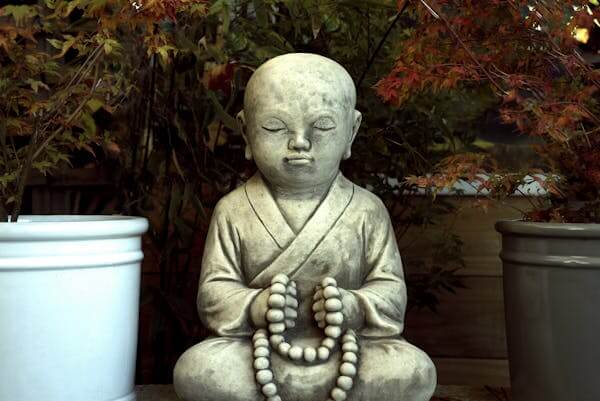
Table of Contents
Introduction
Meditation-The world in which we live today is a busy place, and many a time, there never seem to be enough hours in the day to handle personal and professional pressures.
Continual stress and hustle consequently lead to burnout and decreased productivity levels, thus becoming tough to get things done.
What if I told you that incorporating one easy practice into your daily routine could change your life? Meditations, perceived to be activities reserved for serenity and becoming time-consuming, can turn out to be a strong tool for busy people.
This article will explore how meditate fits into the tightest schedules and why it is a key to personal and professional success. The understanding of meditation and its benefits; what is meditation?
Meditation means more than sitting cross-legged, closing one’s eyes, and mumbling. It is a practice designed to focus the mind and attain a state of mental clarity with emotional calm.
meditate has been practiced for thousands of years; originally, it had its roots in ancient spiritual traditions. Today, it is recognized as a valuable tool for promoting mental well-being and health in general. General Advantages of Meditation
It’s not just about achieving peace with meditation; there are quite a number of benefits one experiences that can greatly impact your life. These benefits include:
• Stress Reduction: One of the well-documented benefits of meditation is the ability of the practice to help reduce stress. When a person is meditating, his/her body produces fewer amounts of stress hormones, including cortisol.
This soothes the mind and body and will, in turn, bring down the general stress levels.
• Improved Focus: With the regular practice of meditation, the concentrating and holding of attention enhance. Training the mind to focus greatly increases productivity and efficiency.
• Emotional Balance: meditate encourages emotional regulation and helps in keeping better control over feelings. It helps one become emotionally more balanced and more resilient to difficult situations.
• Health Benefits: Besides mental health, it works to make a person physically fit. From reducing blood pressure and sleep improvement to the immune system, it is the practice that looks for a complete health package.
Why Meditation is Essential for Busy People
High Stress Levels in Modern Life
Stress must have definitely become a constant companion in our modern world. Long working hours, tight deadlines, and personal responsibilities all mix together to create an overwhelming whirlwind of stress.
The American Institute of Stress mentions that it is indeed very common in the workplace. It states that 83% of US workers report experiencing stress on the job.
It doesn’t make you feel only frazzled; it has some serious consequences on health and productivity. That means burnout, reduces your mental clarity, and is dangerous for your physical well-being.
Meditation as a Tool to Save Time
Good news: meditation can be really time-effective. You do not need hours of free time to get the benefits. Even short, concerted meditation sessions work. As little as just a few minutes a day gives you a good swing at your stress levels and overall well-being.
Think of meditate as an investment in yourself. Time that you meditate means that you are developing some resilience against stress and increasing your potential to perform better in any daily activity.
Practical Meditation Hacks for Busy People
1. The 5-Minute Meditation
How It Works: This 5-minute meditation brings mindfulness into even the busiest of schedules. Take a few minutes sitting quietly, focusing on the breath or a very simple mantra. This short time is enough to quiet the mind and reduce stress hormones.
Benefits: It can help reset your mental state for the day, instantly alleviate stress, and sharpen your focus for the remaining part of the day.
Example Routine:
1. Find a quiet place where you won’t be disturbed.
2. Sit comfortably with your back straight.
3. Close your eyes and take a deep breath in through your nose, allowing your abdomen to expand.
4. Exhale slowly through your nose, releasing any tension.
5. Focus on your breath or repeat a quieting word such as “peace.”
6. Continue for 5 minutes, gently bringing your focus back if your mind wanders.
2. Mindful Moments Throughout the Day
What It Is: Mindfulness means the act of being present in the exact moment. You can practice mindfulness during everyday activities, for example, while commuting to work, eating, and even when you’re standing in a line.
Benefits: These moments of mindfulness will help you stay grounded, ultimately reducing your stress without adding time to meditate. It is about making the most of the time you already have at your disposal.
A Day in the Life:
• Mindful Eating: Engage your taste buds with flavour, texture, and smell of your meal. Eat slowly and enjoy every bite.
• Mindful Commuting: Use your commute to do some mindful breathing or listen to a podcaster that could help you relax.
• Mindful Waiting: Make use of the time spent standing in line or at the red light by taking in a few deep breaths and centring yourself.
3. Guided Meditation Apps and Resources
Overview: Guided meditation apps provide structured meditation sessions led by experienced instructors. They offer different styles and durations of meditations, making it easy to find a meditate session that can fit into your daily routine.
•Calm: It has guided meditations, sleep stories, and relaxation exercises.
•Insight Timer: It hosts more than 15,000 free guided meditations and music tracks for relaxation.
4. Meditation in Everyday Activities
How It Works: One can slip meditate practice into everyday actions like exercise or doing house chores. This will help the individual to practice mindfulness without using up any extra time.
Benefits: You will be more present and less stressed during the day, so meditation can be integrated more easily.
Concrete Examples:
• Walking meditate: Pay attention to the feeling of each step and everything around you as you go. This puts a mindful component into an otherwise ordinary walk.
• Mindful Breathing While Doing Chores: Be deeply mindful of your breathing while doing tasks such as dishwashing or laundry folding.
5. Work Meditation Room
What It Is: If possible, carve out a small space in your office as a meditate space. This does not have to be big or some kind of significant room.
Benefits: Having some type of dedicated space for meditate enables one to take those short moments to reset the mind throughout the day and thereby focus more while cutting down stress levels.


How to Do It:
• Find a Quiet Spot: Corner space or a small room that is relatively free from probable interruptions
•Add Comfort: Add a comfortable chair or cushion; preferred plants and soft lighting help in making the atmosphere conducive
•Set a Schedule: Add specific meditation breaks at specific times during your day. For example, before and after meetings
How Meditation Contributes to Personal and Professional Success
More Focus and Better Productivity
It enhances your concentration and the ability to focus. Through regular meditation, you train your mind to remain focused and alert, and this is manifested in enhanced productivity and efficiency in performance of tasks.
Examples: Many successful professionals have stated that meditation has enabled them to undertake complex tasks and make effective decisions.
meditate reduces distractions and increases the efficiency of the brain in executing its functions.
Better Decision Making and Solving Problems
A calm and clear mind can perform better when it comes to making decisions and solving problems. meditate creates an atmosphere inside which mental clarity is born and allows to work out problems from a place of balance.
Examples: Through meditation, impulsivity is reduced and ability to weigh options increases; then one can make good decisions.
Improved Emotional Intelligence and Relationships
Emotional balance, which can be attained through meditate, helps in having positive interaction with others.
This refines your empathy for others and raises your communication skills, adding up to better conflict resolutions—therefore, fostering stronger bonds in personal and professional life.
Examples: The improved emotional intelligence that results from meditation helps deal effectively with workplace dynamics, enabling better teamwork and a congenial work environment.
Getting Started with Meditation: Tips for Busy People
Set Realistic Goals
Set small, achievable goals for your meditation practice. Just a few minutes a day will suffice, and then you can gradually increase the time when you start to get comfortable with the habit.
Examples: Start meditating for 5 minutes and slowly work your way up to 10 or 15 minutes as you develop.
Establish a Habit
The key here is to meditate regularly. Fit meditation into your day when you can, whether that be first thing in the morning, lunch break or before going to bed.
Examples: Choose a time every day to meditate and try to keep to it. Put reminders or alarms to help in sticking to this practice.
Finding Support and Resources
Also, look for meditation communities, local classes, or online forums for more valuable advice and motivation. Sometimes identifying with other meditators may create a support network.
Examples: Join a local meditation group; share your experiences in online meditation forums with others.


Conclusion
If you think that meditate has to fit into a really busy schedule, it may seem difficult. The good news is that the rewards are totally worth it.
With practical meditation hacks, you will learn how to deal with stress better, focus more effectively, and get better overall well-being on your way to greater personal and professional success.
Start small, be consistent, and let meditate change everything—bring balance into your life and lead you toward success.
Meditation is not some luxury available only for those with endless free time; it is a highly powerful tool that can be seamlessly fitted into any busy life. So why not give it a go? Your mind, body, and career will thank you for it.
